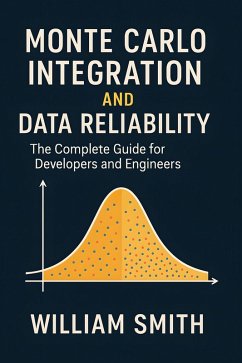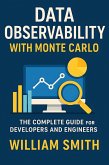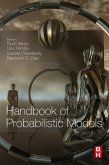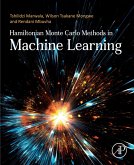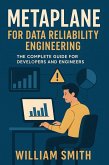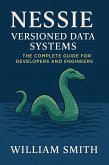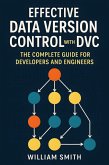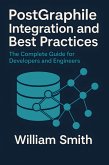"Monte Carlo Integration and Data Reliability" offers a comprehensive and rigorous exploration of the mathematical, computational, and practical foundations of Monte Carlo integration, with a unique emphasis on the impact and management of uncertain and unreliable data. The book opens with a deep dive into the probabilistic and measure-theoretic underpinnings of Monte Carlo methods, providing detailed coverage of convergence theorems, sources of estimation error, and challenges posed by high-dimensional problems. Readers are equipped with advanced integration techniques-including variance reduction, adaptive and Markov Chain Monte Carlo strategies, and quasi-Monte Carlo methods-as well as state-of-the-art approaches for implementing and scaling algorithms across modern computing architectures.
Beyond algorithmic fundamentals, this text distinguishes itself by integrating the principles of data reliability directly into the world of stochastic simulation and numerical integration. It covers the definition and measurement of data reliability, models data corruption and loss, and investigates redundancy, error-correcting codes, and integrity verification in storage and transmission. The interplay between input data quality and the reliability of simulation outcomes is explored in depth, complemented by statistical techniques for error assessment, uncertainty quantification, and robust algorithm design. Real-world case studies illustrate how to engineer resilience against imperfect, incomplete, or noisy data within Monte Carlo frameworks.
Designed for researchers and practitioners across applied mathematics, engineering, finance, and computational science, this volume also addresses topics of verification, validation, and reproducibility in Monte Carlo workflows. It presents up-to-date methodologies for continuous validation, pipelines automation, and reproducible research, rounding out the discussion with application-driven chapters spanning quantitative finance, computational sciences, engineering design, biological modeling, and big data. The book concludes by surveying frontier research directions, including Monte Carlo approaches in quantum computing, hybrid simulation-learning methods, and the challenges of uncertainty at exascale. This work serves as an essential reference for anyone seeking to advance the robustness and reliability of simulation-based integration in data-rich, real-world environments.
Dieser Download kann aus rechtlichen Gründen nur mit Rechnungsadresse in A, B, BG, CY, CZ, D, DK, EW, E, FIN, F, GR, H, IRL, I, LT, L, LR, M, NL, PL, P, R, S, SLO, SK ausgeliefert werden.

